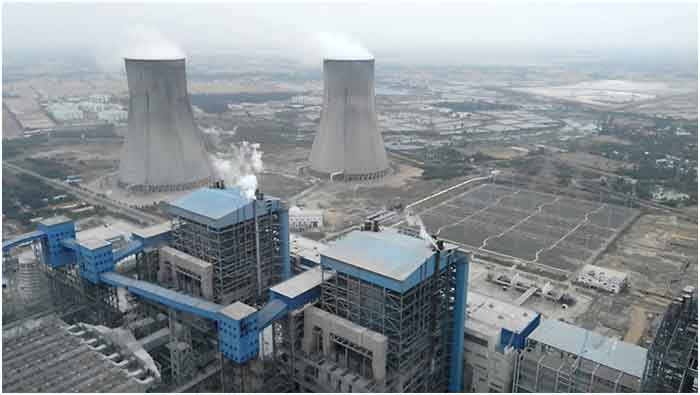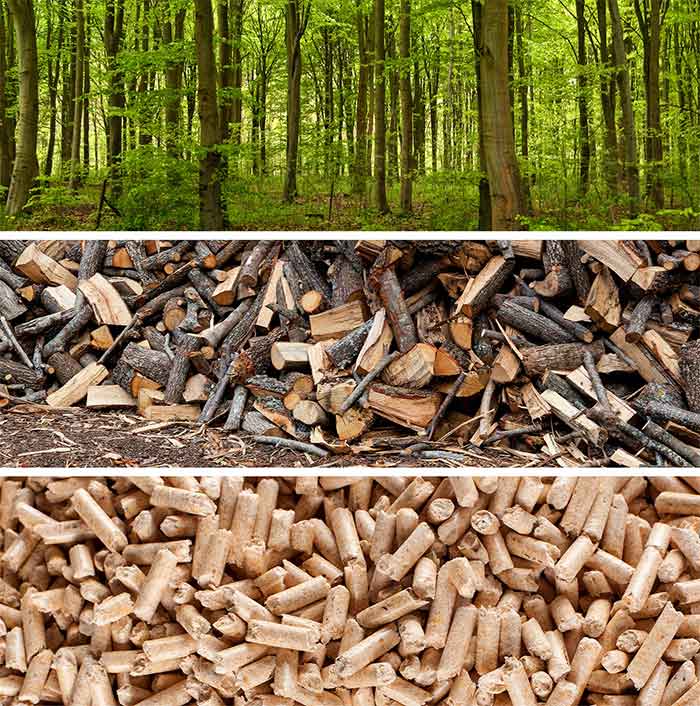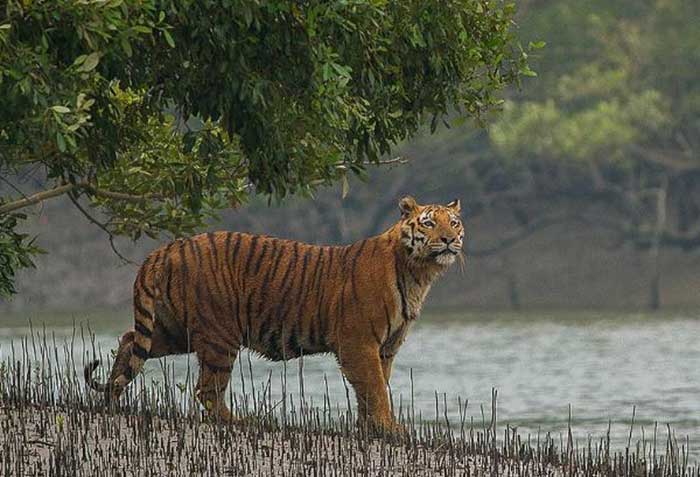
Environment can’t escape contradictions. Exploitative economy with its antagonistic connections to environment creates antagonistic contradictions with and within environment; and, the antagonistic contradictions are inescapable in the economy.
Capitalism intensifies the contradictions. Two revolutionaries, Marx and Engels find:
“Our own age, the bourgeois age […] has simplified class antagonism. More and more, society is splitting into two great hostile camps, into two great and directly contraposed classes; bourgeoisie and proletariat.” (The Communist Manifesto)
Not only contradiction between capital and labor; capital’s expropriation and appropriation of human society and nature intensify the contradictions. With capitalism,
“[t]he expansion of the markets continued [….]
“Large-scale industry established the world market […] The result of the development of the world market was an immeasurable growth of commerce, navigation, and land communication. […] [S]o did the bourgeoisie develop, increasing its capitalized resources […]
“[….]
“Urged onward by the need for an ever-expanding market, the bourgeoisie invades every quarter of the globe. [….]
“[I]ndustries […] no longer depend upon the homeland for their raw materials but draw these from the remotest spots; [….]
“[….]
“It [the bourgeoisie] forces all the nations, under pain of extinction, to adopt the capitalist method of production; […]” (ibid.)
These create contradictions in the invaded/colonized/neo-colonized, broadly the Third and Fourth Worlds (TFW), countries; and as the TFW’s characteristics are different from the advanced bourgeois economies, the contradictions manifest in its own way. Imperialism’s control/occupation of the TFW/the TFW’s ties to/dependence on the imperialist world order, and politics of the ruling elites and their masters – imperialism – create contradictions.
Contradictions in the spheres of production, consumption are there. The economy turning everything including nature into commodity; capitals’ reproduction and accumulation, and social system it creates engender contradictions within environment. The system depends on exploitation of labor and nature. Dispossessions the exploiting economy creates have its role in the contradictions. These mingle into a single existence, and direct and drive human-environment relation in its way – antagonistic.
All these contradictions in the TFW capitalist environment are fundamental, and connected to classes with hostile relations. Thus, contradictions with and within environment don’t stand independent of and isolated from classes and class struggle. Consequently, ignoring class struggle or subordinating class struggle to struggle for environment isn’t possible. Rather, class struggle takes lead in different manifestations and forms, in visible or invisible way.
Today, none will claim that politics, in no way isolated from/independent of classes, is not connected to the question of environment. Accordingly, democracy with its different forms and class characters is not also apart from environmental question. Peter A. Walker identifies at least three links between democracy and environment: 1. citizens holding leaders accountable; 2. greater responsiveness of political leaders; 3. increased local participation in environmental decision-making and management. (“Democracy and environment: congruencies and contradictions in southern Africa”, Political Geography, vol. 18, issue 3, March 1999) None of these is isolated from classes, to be specific, class contradiction, class power and class equation.
Despite having fundamental flaws regarding ecological ideas of Marx, James O’Connor writes: “[T]here is a class dimension to all struggles over conditions […] Most problems of the natural and social environments are bigger problems from the standpoint of the poor […] [I]ssues pertaining to production conditions are class issues […], which becomes immediately obvious when we ask who opposes popular struggles around conditions? The answer is, typically, capital, which fights against massive public health programs, emancipatory education, controls on investments to protect nature, even adequate expenditures on child care, certainly demands for autonomy or substantive participation in the planning and organization of social life.” (“The second contradiction of capitalism”; and “Capitalism, Nature, Socialism: A theoretical introduction”, Capitalism Nature Socialism, vol. 1, issue 1, Fall, 1988)
The more capitalization of nature happens the more contradictions increase and sharpen. There’s, as Piers Blaikie and Harold Brookfield name, poverty driven “desperate ecocide”, which is related to extraction of surplus value. (Land Degradation and Society, ed., Methuen, London and New York, 1987) This poverty driven desperate ecocide is connected to hostile classes – one exploiting, creating poverty, dispossessing the poor of their environmental rights while the exploited living in generations-long ghetto of poverty, increasingly losing access to environment including the commons, losing all the spaces essential for survival, and having no scope for humane development, for a peaceful-prosperous life.
From where-not begins the dispossession? It begins from physical space, from wage-food-health-working condition-market place, from politics curtailing environmental rights, from legislation hurting environment and hiding environment-loot, from tariff and fiscal policy to finance, credit and energy. It’s a long list, which seems unending. It begins from external relations, from multilateral donors, banks and credit capitals, MNCs, from labor, peasant and broadly, people’s rights denials, from industrial and trade policies, from dumping of hazardous wastes, from transfer of environment-hostile technology.
Actors in this “amazing game” hurting humanity are not so many. They are within borders, and outside of borders – the exploiters, the ruling classes; and capitals. They’re powerful enough to subdue multitudes, societies, entire environment, and in all sectors of economy and all areas of politics affecting all forms of life. They are lenders, grabbers, snatchers, bosses bent on increasing accumulation. There’re “Green”, etc. bank, portfolio, infrastructure projects, farming at industrial level, etc. – a bountiful profit-area with billions of dollars. Connections to the imperialist world order/markets of raw and finished products and of credit are there. Hence, there’s the presence of imperialist geopolitics.
On the other pole, the sufferers, the exploited, and those in the middle of both of the poles, are many; but un- or poorly-aware and un- or poorly-organized in most cases. Now-a-days, mostly, physical appearances of destruction of nature come into their view. The mainstream discourse ignores source of, connections in, driving force behind and main players of the “game”. Environmental Keynesianism, state spending on “green” etc., is also in this miss-the-culprit game.
Despite these omissions, contradictions remain alive in workplaces, crop fields, forests, water bodies, marine fishing areas, health care, food, urban areas/slums/residential and would-be residential areas/communities, educational institutions, infrastructure, industries, commerce, transportation, market, games-sports, public recreation and amusement facilities, taxes, tariffs, legislation, fund allocation, management, information flow, transparency, accountability, planning, participation, etc. These areas, obviously part of class power and politics, as a whole impact broader society, especially the poor, and specifically, workers, farm workers, landless and poor peasantry, fishers, artisans, weavers, energy-poor, petty traders, farmers with mid-sized holdings, lower- and mid-middle class, teachers, students, people forced out of their land to arrange residential areas for sahibs. They all don’t constitute a single class, but a number of classes. Sometimes, a part of the rich farmers and traders are impacted also.
The contradictions are at local/community and countrywide levels, and with dominating power structure, which is totally class-based. There’s no scope to get out of class conflict in these areas even if someone disavows the questions of class and class struggle.
In the TFW, lack of bare minimum bourgeois democratic rights intensifies the contradictions; and, the environmentally dispossessed people confront ruling machine. Goons, in this case of contradiction, are mere part of the machine.
Therefore, contradictions in the Third World capitalist environment moves along class line, in economy, society and politics. The exploiting, the looter, and the exploited, the looted, classes are involved in this confrontation opposing each other. The more capital encompasses all around, the more capital maximizes profit the more contradictions in environment along class line intensify. Contradiction with imperialism with its capital commanding life in the Third World capitalist economy is active whenever people in the Third World economy move for a democratic, peaceful, prosperous life and environment, whenever their democratic aspiration is for an environment and economy serving them in a people’s democracy.
Farooque Chowdhury writes from Dhaka, Bangladesh.
SIGN UP FOR COUNTERCURRENTS DAILY NEWSLETTER
















































